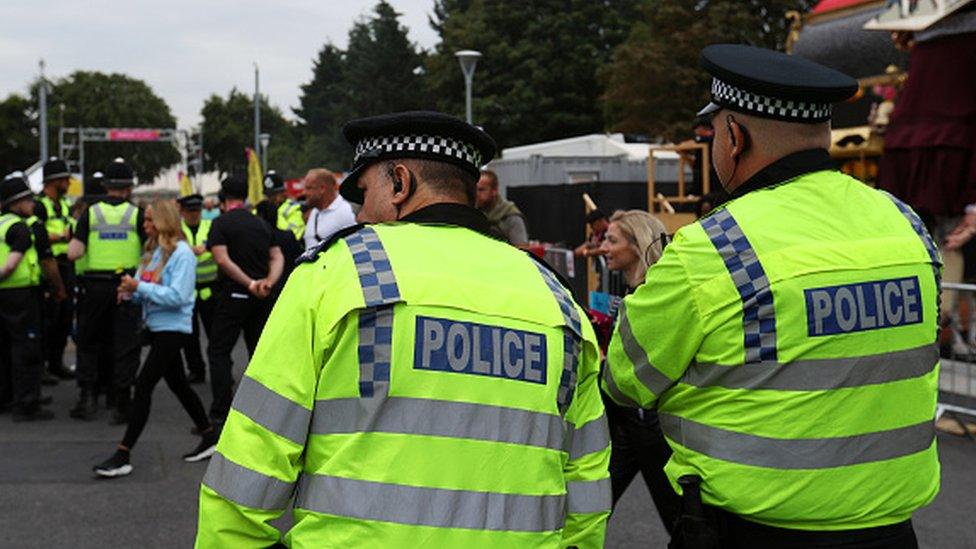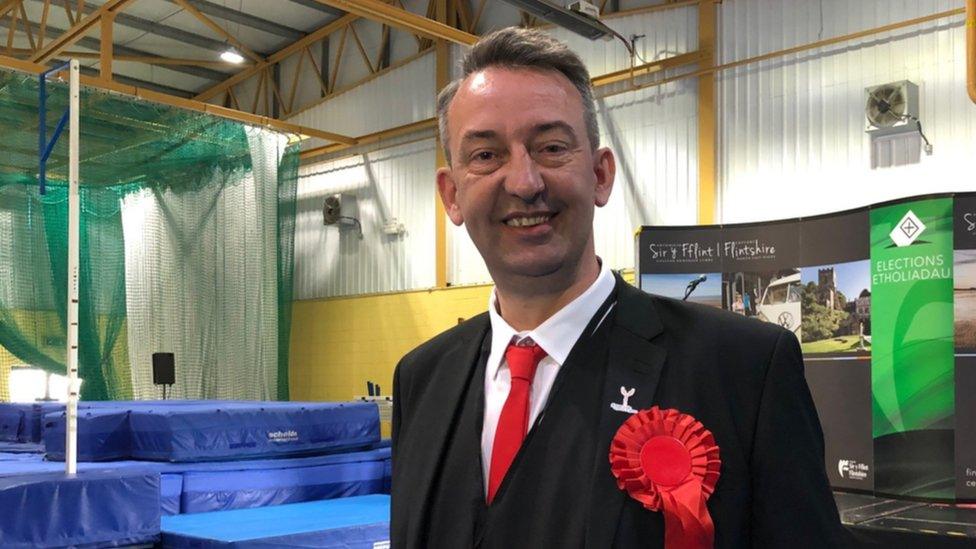Welsh Labour police commissioner hopefuls selected without members' vote
- Published

Labour has been criticised after it selected its Welsh candidates for the police and crime commissioner (PCC) elections without a vote of the membership.
South Wales' Alun Michael and Gwent's Jeff Cuthbert will both quit the job in May 2024.
They will be replaced by Labour on ballot papers by Mr Michael's deputy and a council leader.
Welsh Labour said it does not comment on internal processes.
Some party members speaking to BBC Wales said that, barring some limited email communication, they had heard very little about the process.
BBC Wales was told the process was likely to annoy activists. One party councillor, who did not want to be named, said the selection in south Wales felt like a "stitch-up".
Mr Michael had faced a vote of the membership before the last PCC elections.
PCCs are some of the best paid elected officials in Wales - in south Wales the PCC receives a salary of £86,700, while in Gwent the PCC gets £71,400.
They do not run the operations of police but they do oversee police budgets and priorities.

Alun Michael has been PCC for south Wales since 2012
Emma Wools, Mr Michael's deputy PCC, was selected by a panel to be Labour's south Wales candidate. Meanwhile current Newport council leader Jane Mudd will be the party's Gwent candidate.
Mr Michael was the first devolved leader of Wales when the National Assembly was formed in 1999, before he was forced out nine months later.
He has been PCC for south Wales since the roles' inception and first election in 2012, winning re-election twice.
Explaining his decision to go, Mr Michael, 80, said south Wales had "built" a partnership model that had "matured".
"I've done three terms as police and crime commissioner. I think it's time for fresh leadership," Mr Michael told BBC Wales.
He said Labour selected its candidates for the next election through a panel, which he said had been used across England and Wales.
Mr Michael said an invitation for candidates had been circulated to members and he and Mr Cuthbert had held a session to talk to anyone interested in standing a few weeks before the closing date for applying.
"It was done through a panel but very openly and everyone has known that for a long time," he said.
Mr Michael said the controversy over his comments on the Ely riot was not a factor in his decision to quit.
'Without so much as a hustings'
A Labour councillor in Wales, who asked not to be named, said the south Wales selection felt like a "stitch-up", criticising Mr Michael's deputy for being appointed as the candidate "without so much as a hustings, let alone a vote".
They said Labour was "reducing accountability".
They added: "We are going to ask voters to endorse a 20mph policy which has upended their lives, that they will lose the ability to hold their Senedd members to account when the new 'sub-optimal' voting system is introduced, then we are also going to be handing over leaflets with a PCC candidate who members didn't pick, to fill a role that the public are largely completely ambivalent about."
A meeting of the Gwent Police and Crime Panel, which scrutinises the work of the PCC, heard earlier this year that Mr Cuthbert was planning to stand down.
In a statement, read on his behalf at the meeting, the former Senedd member said that he had suffered two-mini-strokes in July.
He said: "I'm incredibly proud of the contribution that we have made collectively together over this period. However, if I was to stand again, I would be committing until I was one month short of my 80th birthday. I believe that it is now time to hand over to someone else."
Labour also reselected Andy Dunbobbin in north Wales, and selected Philippa Thompson for Dyfed Powys.
BBC Wales was told that party members were written to about the role and selection of PCCs. A spokesperson for the party declined to comment on internal processes.

DOUBLE TOP: The darts team on a mission to complete a decent season
A POSITIVE LIFE: HIV from Terrence Higgins to Today

Related topics
- Published8 November 2023

- Published13 May 2023

- Published9 May 2021
